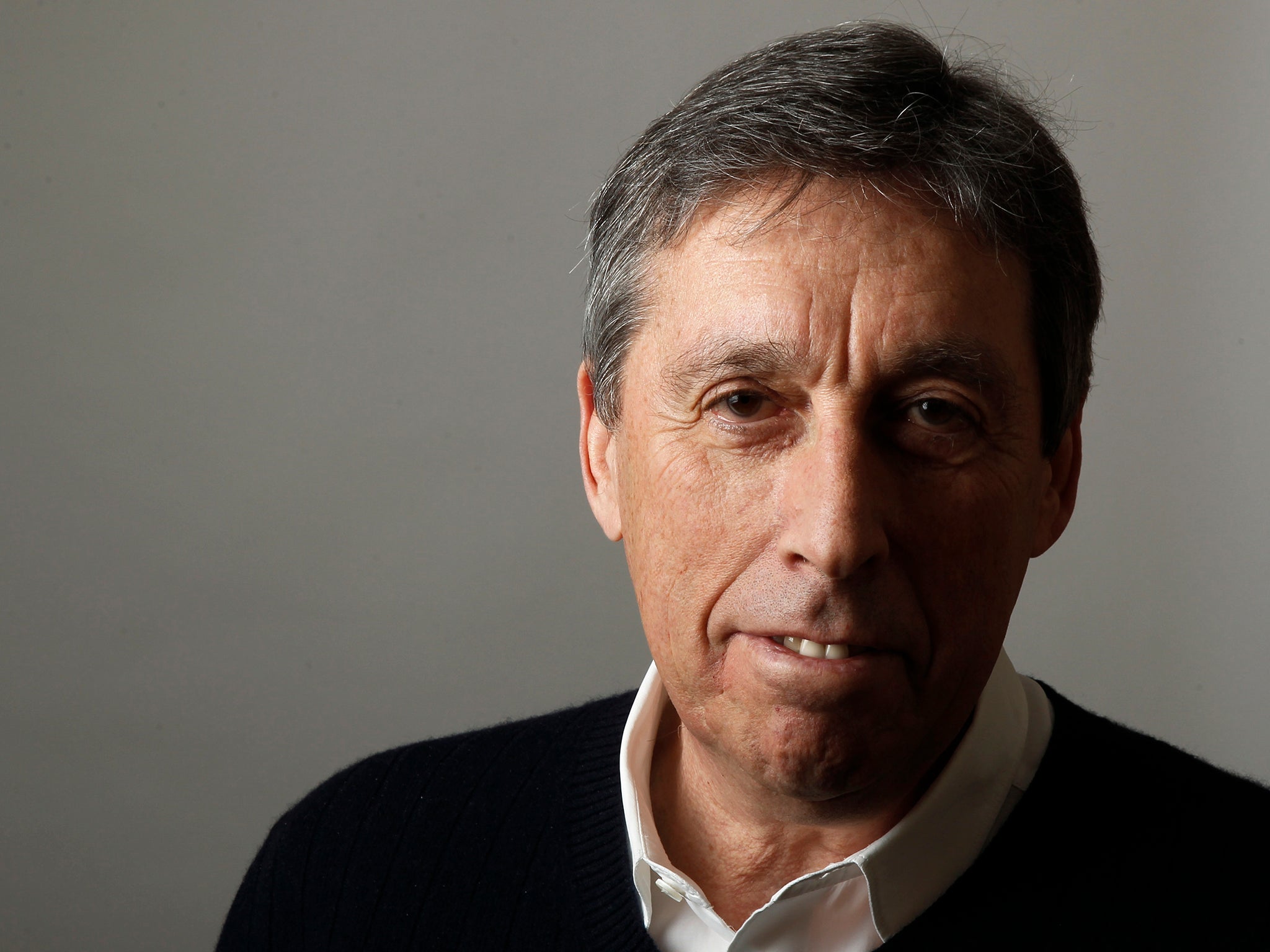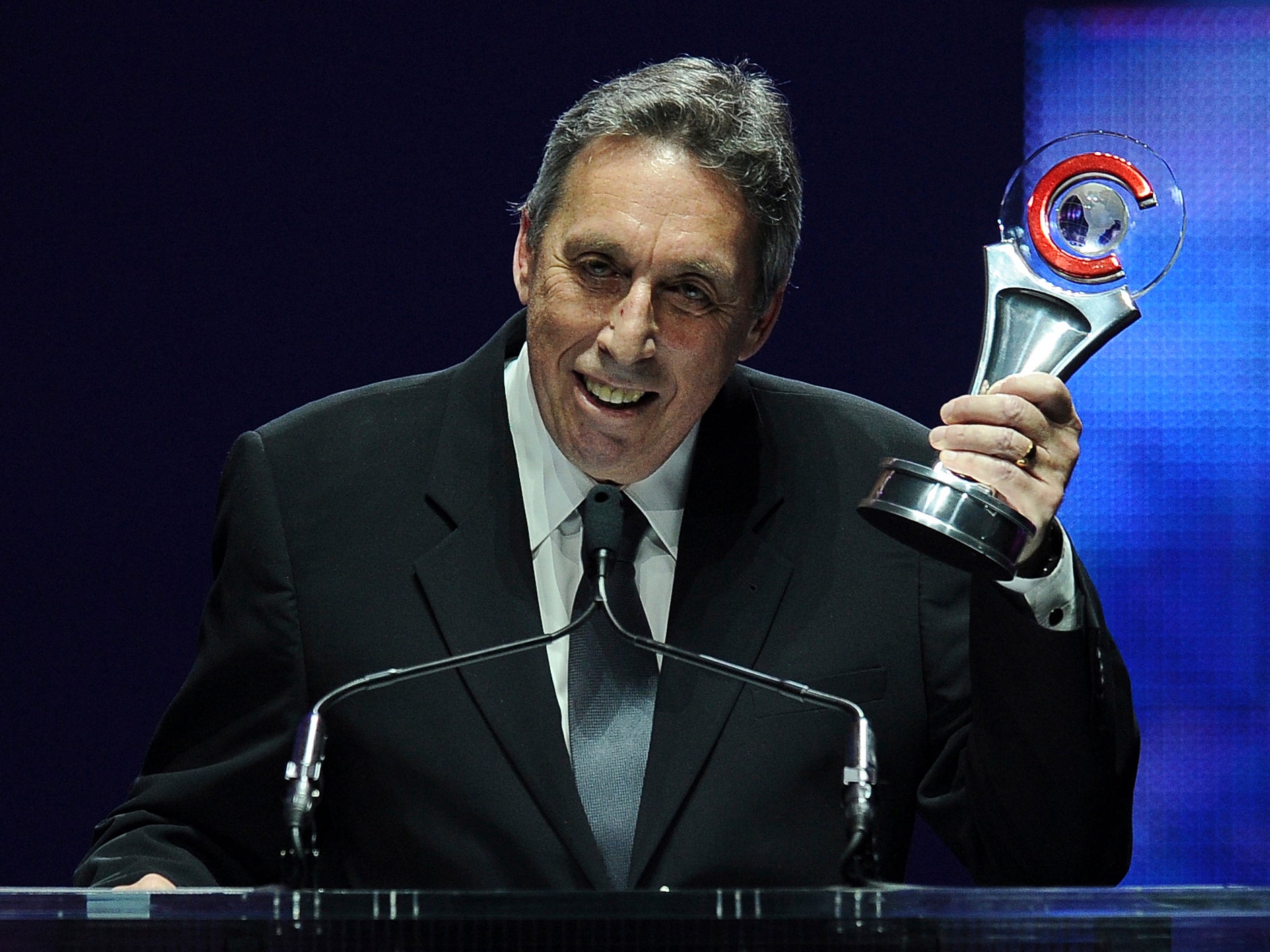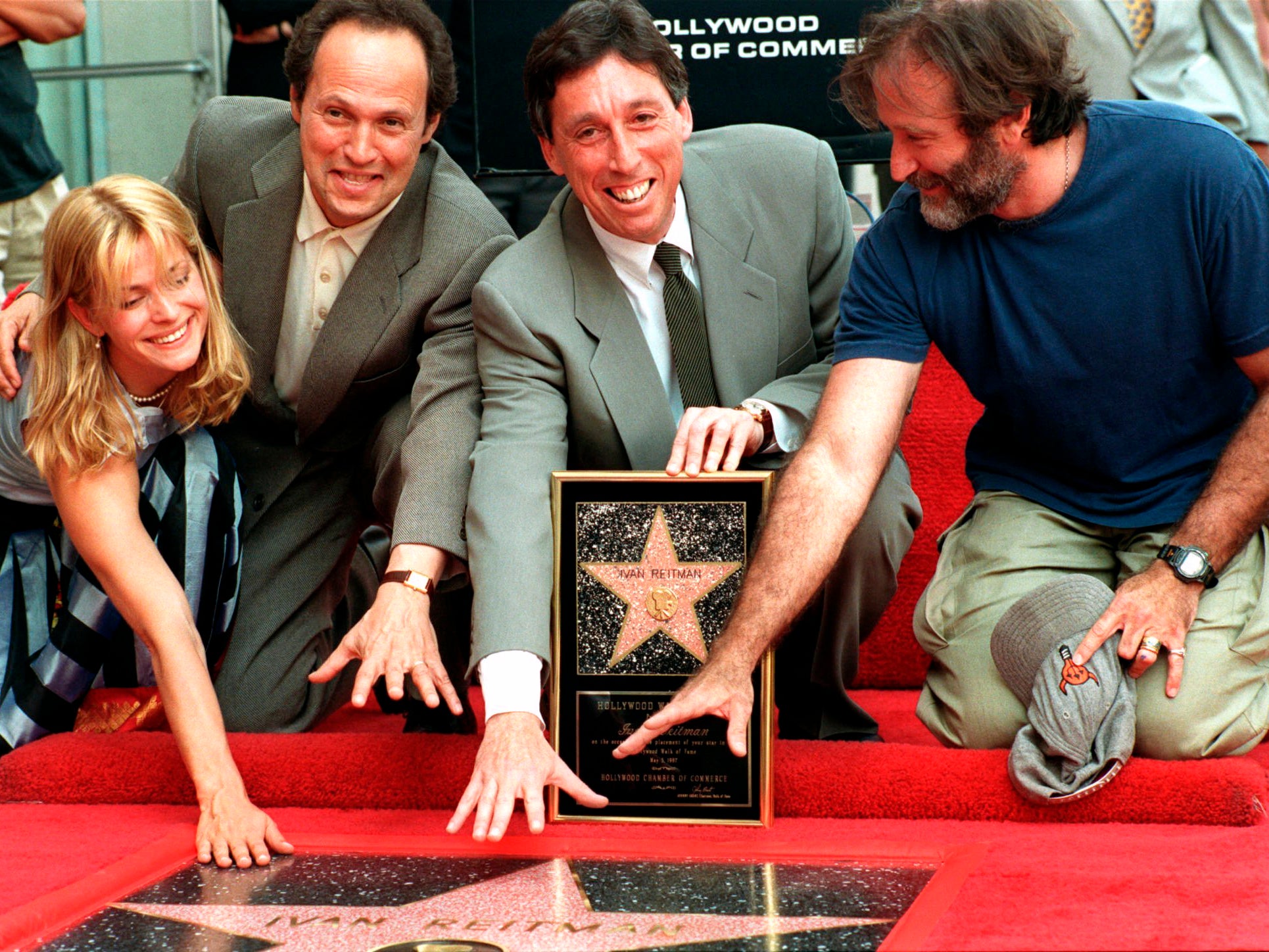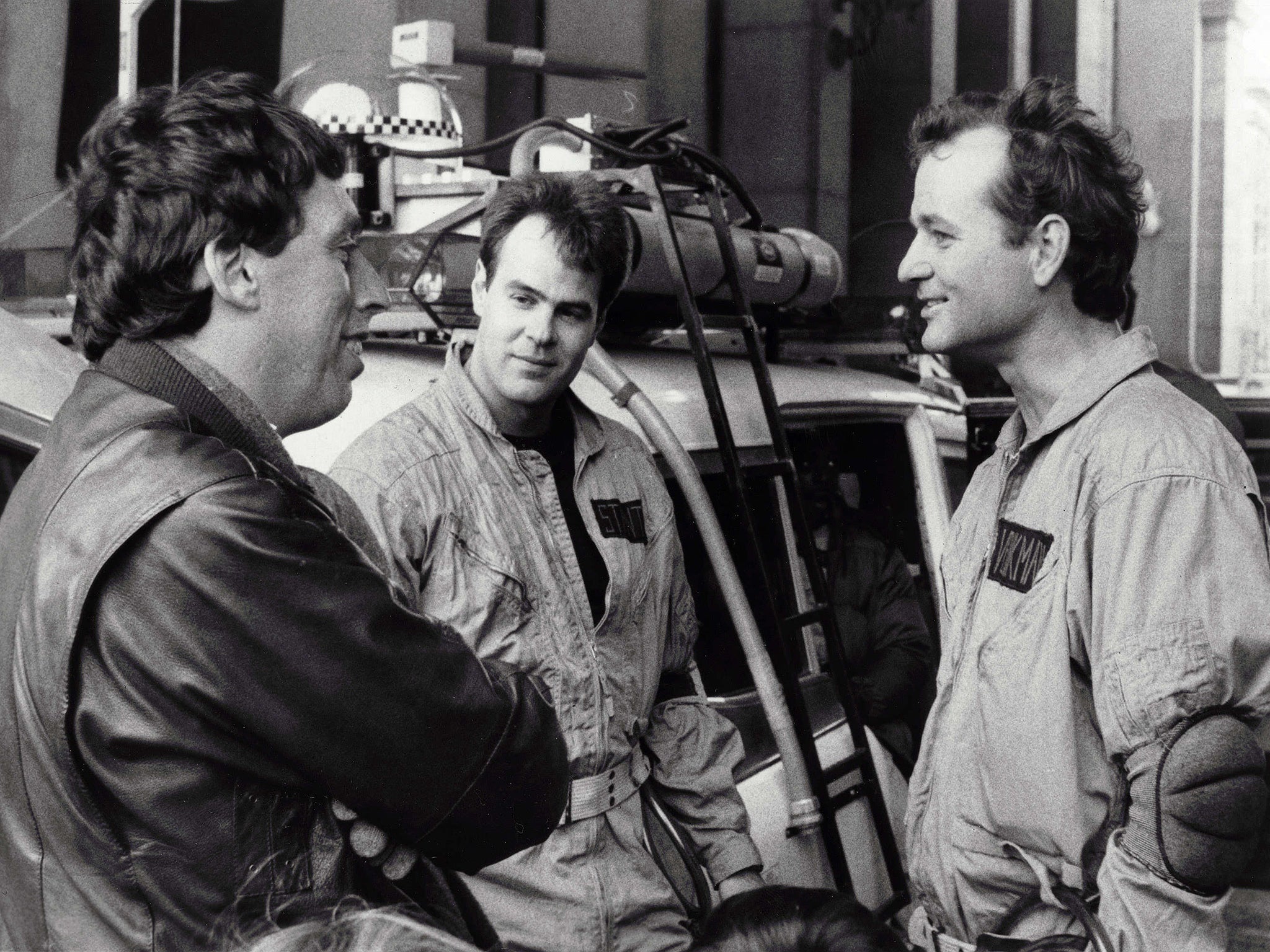Ivan Reitman: Ghostbusters director who left indelible mark on Hollywood
While his movies often never received critical acclaim, they made more than $2bn at the box office and inspired a generation of movie-goers

Ivan Reitman, a director and producer who made some of the most beloved movie comedies of the Seventies and Eighties and introduced viewers to the slimy work of “supernatural elimination” in Ghostbusters, has died aged 75.
Reitman was one of the most successful comic filmmakers of his time, known for channelling an irreverent, anti-establishment sensibility in movies that harnessed the talent of Saturday Night Live stars such as John Belushi, Bill Murray and Dan Aykroyd. His movies rarely drew critical acclaim, but they made more than $2bn at the box office and inspired filmmakers such as Todd Phillips, whose comedies Road Trip (2000) and Old School (2003) were among the more than 70 movies and TV shows that Reitman produced.
“He has a great feeling for the pulse of an audience,” Aykroyd told the Canadian magazine Maclean’s in 1986. “He knows how to build those points of reaction, the peaks and valleys that make a movie work.”
Reitman directed nearly 20 films, often involving rebellious goofballs in outlandish situations. The end of his US army comedy Stripes (1981) saw Murray, Harold Ramis and other soldiers accidentally invade Czechoslovakia, while the climax of Ghostbusters (1984) showcased the demonic Stay Puft Marshmallow Man, a corporate mascot who lumbers through the streets of New York, wreaking havoc.
“This movie is an exception to the general rule that big special effects can wreck a comedy,” film critic Roger Ebert wrote in a review of Ghostbusters, which starred Murray, Aykroyd and Ramis as a trio of ghost-catching New Yorkers. The film earned some $230m in the US and spawned books, comics, television shows, a remake and two sequels, including Ghostbusters: Afterlife (2021), which was produced by Reitman and directed by his son.
Reitman was the son of Hungarian Jews who survived the Holocaust and fled communist Czechoslovakia. He grew up in Canada, where he made satirical short films and low-budget horror comedies. He launched his mainstream movie career with Animal House (1978), which he produced with Matty Simmons, capitalising on the success of the comedy magazine National Lampoon. Filmed for less than $3m, the movie starred Belushi as a member of the raucous Delta Tau Chi fraternity, and made more than $140m at the US box office.
“It killed me I didn't get to direct it,” said Reitman, who was passed over for a more experienced filmmaker, John Landis.
Reitman later directed Murray in his first starring film role, as a summer camp counsellor in Meatballs (1979), and helped launch Arnold Schwarzenegger’s career as a comedic actor, pairing him with the diminutive Danny DeVito in Twins (1988) – they played the separated-at-birth title characters – and casting him alongside a pack of unruly children in Kindergarten Cop (1990).

By then, he had acquired a “schlockmeister” reputation, as he put it, for directing broad and sometimes bawdy comedies. But he also showed a more serious side while earning an Oscar nomination for Best Picture as a producer of Up in the Air (2009), directed by his son, and an Emmy nomination as an executive producer of The Late Shift (1996), a TV movie about the power struggle over who would succeed Johnny Carson as host of The Tonight Show.
Reitman branched out as a director as well, including in the political satire Dave (1993), starring Kevin Kline as an ordinary man who impersonates the president and ends up serving as commander in chief. He also produced, directed and wrote the story for Legal Eagles (1986), a legal comedy and crime thriller starring Robert Redford, Debra Winger and Daryl Hannah.
The movie was partly modelled after romantic comedies of the late 1940s and 1950s, which represented “an island of optimism in a world that is perceived more and more as chaotic,” Reitman told The New York Times.
“When people talk about making movies that way, it’s not so much to recreate the movies of the Forties but to recreate the sensibilities where people stood up for what was right, where people trusted each other, where there was an order to life,” he said. “What I’m struggling to do is find a contemporary way of telling a story and still have those sensibilities at play, because I think, at heart, I’m like that.”

Ivan Reitman was born in Komarno, Czechoslovakia – now part of Slovakia – on 27 October 1946. His mother was an Auschwitz survivor, and his father owned the country’s largest vinegar factory and fought with the resistance during the Second World War, according to the Associated Press.
Soon after the communist takeover, Reitman fled the country with his family, hiding under the floorboards of a tugboat. “We were five days in that boat,” his father, Leslie, later told The New York Times. “It was very hard on him. This affects a child. Maybe what he missed as a very young child, this is what he wanted to recapture in high school and college – the crazy stuff.”
The family settled in Toronto, where his father bought a dry-cleaning business and then a carwash. Reitman and his family later donated the property to the Toronto International Film Festival, helping to build a year-round home for the organisation.
Reitman sang in a folk group before studying music at McMaster University in Hamilton, Ontario, receiving a bachelor's degree in 1969. He directed student plays and led the film club, making short films of his own after taking a summer course through the National Film Board of Canada.

One of his first movies, a 20-minute satire titled Orientation (1968), screened at Toronto theatres. A year later he produced The Columbus of Sex, an art film that depicted a young man's sexual exploits and spurred an obscenity trial, at which Reitman was convicted and fined $300.
His first feature as a director, the comedy Foxy Lady (1971), marked the movie debuts of Eugene Levy and Andrea Martin, who both starred in his follow-up, the low-budget horror comedy Cannibal Girls (1973), about a group of man-eating women.
Reitman also worked on the stage, producing the Broadway musical The Magic Show which featured magician Doug Henning and ran from 1974 to 1978, and The National Lampoon Show, an off-Broadway revue that opened in 1975 and paved the way for his work on Animal House.
He later earned two Tony nominations as the producer and director of the 1983 musical Merlin, which reunited him with Henning and featured music by Elmer Bernstein.
As a director, he worked with stars such as Robin Williams, Billy Crystal, Harrison Ford, Uma Thurman, Luke Wilson, Ashton Kutcher and Natalie Portman, making romantic comedies including Fathers’ Day (1997), Six Days Seven Nights (1998), My Super Ex-Girlfriend (2006) and No Strings Attached (2011).
Survivors include his wife, Geneviève Robert, and three children, Jason, Catherine and Caroline Reitman. Complete information on survivors was not immediately available.
As a director, Reitman sought to strike a balance between freedom and control, giving cast members leeway to interpret their roles while still working to ensure the movie held together as a whole.
“There’s a moment when the actors can say anything they want, and then, part of the fun for me as a director is to take that raw work and just structure it and rework it and make it conform to the character work and to the plot, which is evolving as well,” he told The New York Times. “It’s a way of being a co-writer of a movie as it’s being shot. But it doesn’t allow for the same kind of focused direction and polished style that leads to much recognition for the creator of the film.”
Ivan Reitman, director and producer, born 27 October 1946, died 12 February 2022
© The Washington Post

